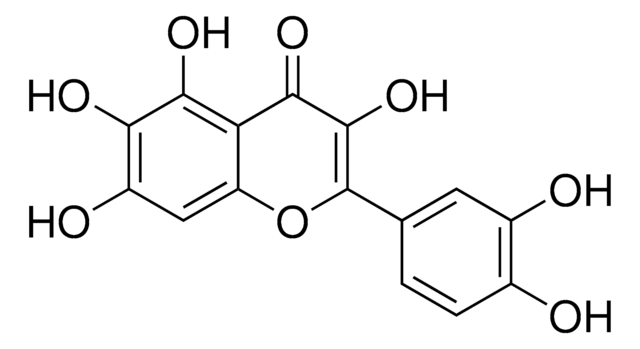Y0000113
Carbachol
European Pharmacopoeia (EP) Reference Standard
Synonym(s):
Carbamoylcholine chloride, (2-Hydroxyethyl)trimethylammonium chloride carbamate, Carbachol, Carbamylcholine chloride
About This Item
Recommended Products
grade
pharmaceutical primary standard
API family
carbachol
manufacturer/tradename
EDQM
mp
210 °C (dec.) (lit.)
application(s)
pharmaceutical (small molecule)
format
neat
storage temp.
2-8°C
SMILES string
[Cl-].C[N+](C)(C)CCOC(N)=O
InChI
1S/C6H14N2O2.ClH/c1-8(2,3)4-5-10-6(7)9;/h4-5H2,1-3H3,(H-,7,9);1H
InChI key
AIXAANGOTKPUOY-UHFFFAOYSA-N
Gene Information
human ... CHRM3(1131)
Looking for similar products? Visit Product Comparison Guide
General description
Application
Packaging
Other Notes
related product
Signal Word
Danger
Hazard Statements
Precautionary Statements
Hazard Classifications
Acute Tox. 2 Oral
Storage Class Code
6.1A - Combustible acute toxic Cat. 1 and 2 / very toxic hazardous materials
WGK
WGK 3
Flash Point(F)
Not applicable
Flash Point(C)
Not applicable
Choose from one of the most recent versions:
Certificates of Analysis (COA)
Sorry, we don't have COAs for this product available online at this time.
If you need assistance, please contact Customer Support.
Already Own This Product?
Find documentation for the products that you have recently purchased in the Document Library.
Customers Also Viewed
Our team of scientists has experience in all areas of research including Life Science, Material Science, Chemical Synthesis, Chromatography, Analytical and many others.
Contact Technical Service














